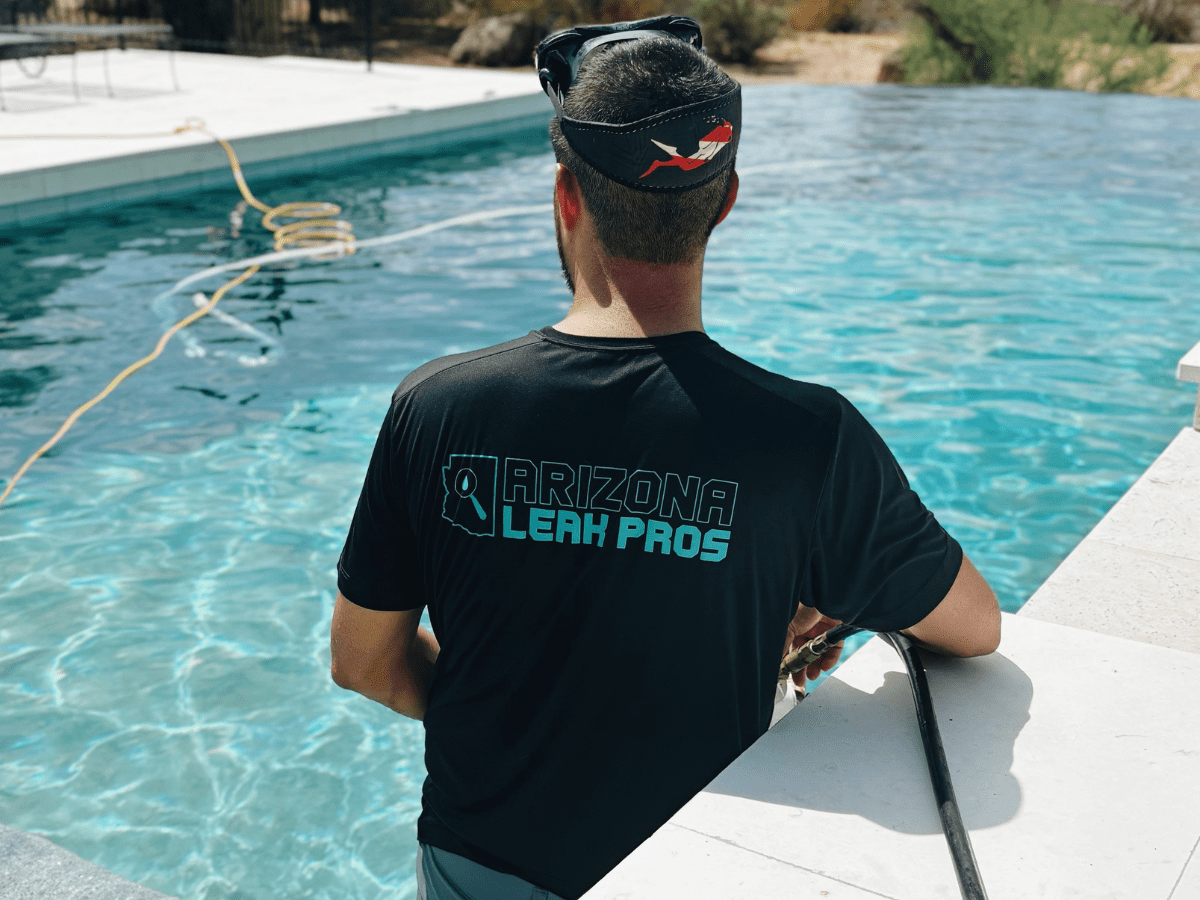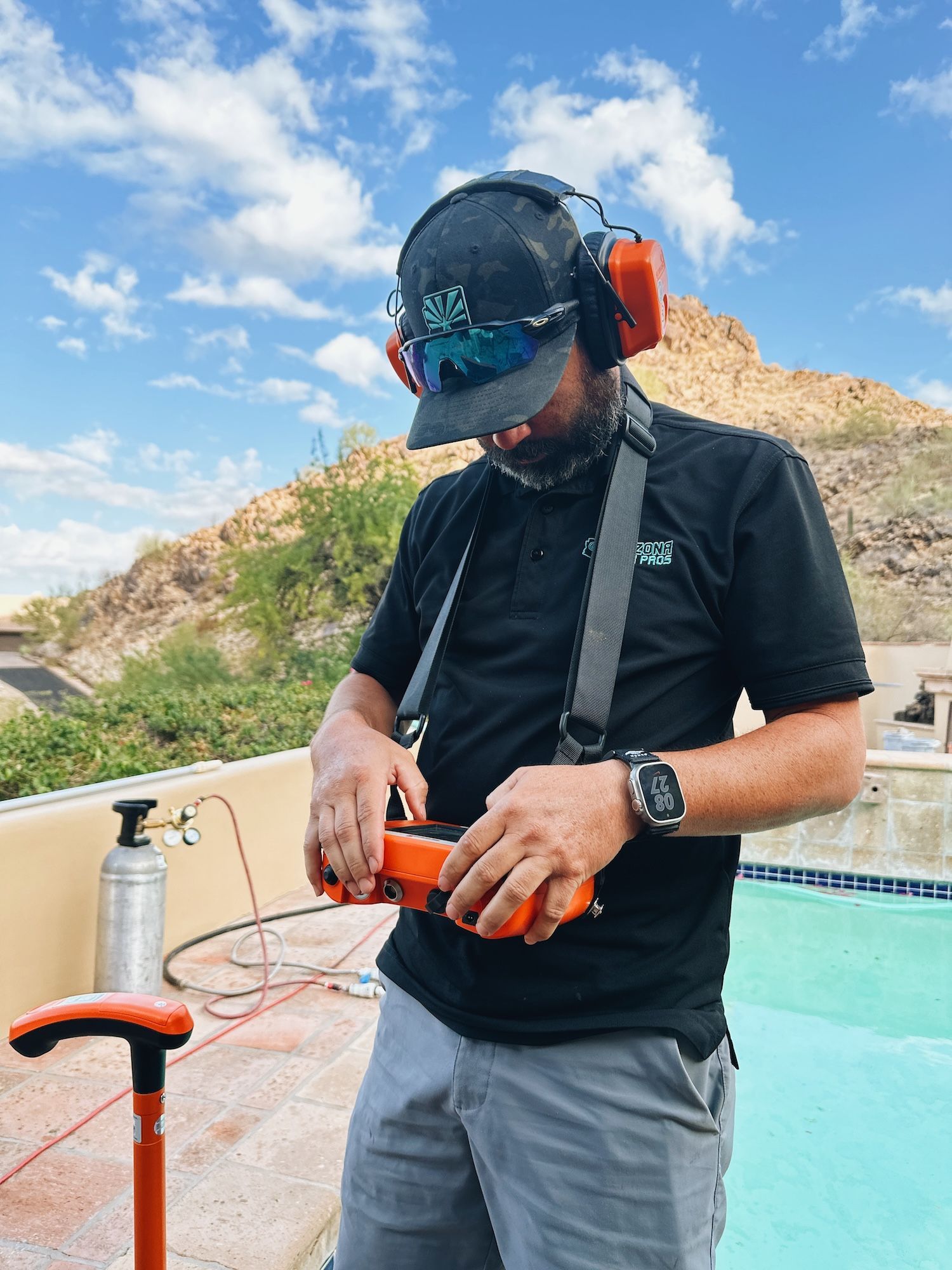Pool Leak Detection
PROTECT YOUR INVESTMENT
Leak Detection For Swimming Pools
At Arizona Leak Pros, we find the exact source of pool and spa leaks with precision that comes from years of specialized experience across thousands of Valley pools. We focus exclusively on pool leak detection, allowing us to perfect our craft and invest in advanced technology that pinpoints problems other companies miss.
Your pool should be a place for relaxation and family memories, not a source of frustration and wasted water. Our goal is to stop the leaks in their tracks, restore your pool to its former glory, and get you back to enjoying your backyard oasis.
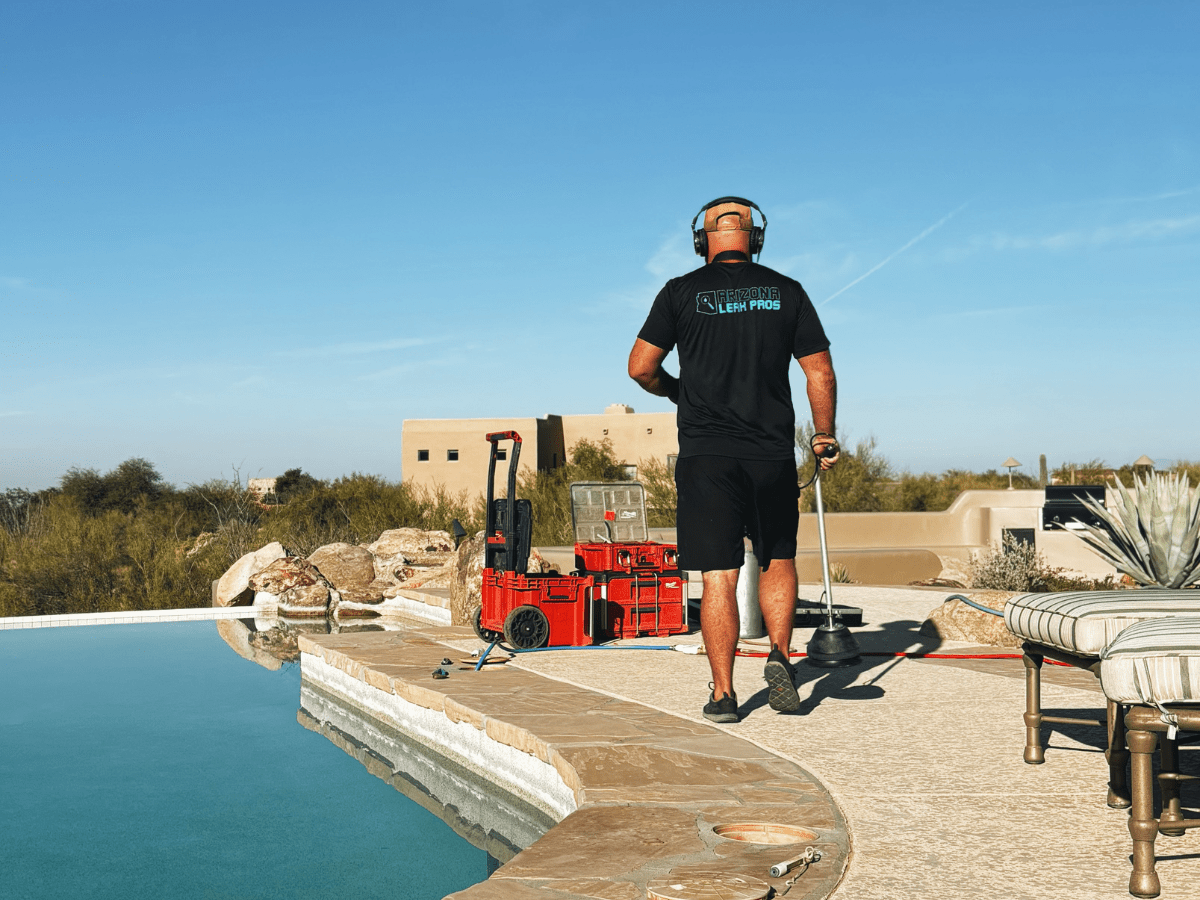
What Our Clients Say
Why Arizona Residents Choose Us For
Pool Leak Detection Services
DIY Bucket Test
Before hiring a leak detection company, we always recommend conducting your own Bucket Test.
This will not only help confirm whether or not your pool is leaking, but it will also tell you how much water your pool is actually losing.
Watch this step-by-step video on how to easily conduct one of these tests using household items. Feel free to give us a call if you have any questions!
Why Timely Pool Leak Detection Is Crucial
Preserving Your Pool's Integrity
Undetected pool leaks can be detrimental, potentially causing underground erosion, weakening the pool’s structure, and leading to more severe issues like ground settlement. Professional pool leak detection and repair is vital to safeguard your pool’s longevity, ensuring it remains a secure and enjoyable space for years to come. By addressing leaks early, you avoid the escalation of minor issues into major, expensive repairs, protecting your investment and peace of mind.
CONSERVING ARIZONA'S WATER SUPPLY
In Arizona’s arid climate, every drop of water is valuable. Timely detection and repair of pool leaks play a significant role in water conservation efforts. By fixing leaks quickly, not only do you contribute to the state’s environmental sustainability, but you also see a direct benefit in reduced water usage and lower utility costs. This proactive approach to water conservation reflects a commitment to both environmental stewardship and economic savings for Arizona residents.
We Don't Stop Until The Problem is Solved
100% Leak Free Guarantee
Your pool matters to you, so it matters to us.
We don't quit until your pool stops losing water. Period. Some leaks hide in tricky spots that others miss, but we've developed pool leak detection methods that find even the most hidden problems.
That's why we back our work with a 100% leak-free guarantee. We test thoroughly after every job because we know what's at stake - your time, money, and enjoyment of your backyard oasis.
No partial fixes. No "good enough." Just pools that hold water the way they should.
Take Action Before Its Too Late
What Happens If You
Ignore A Leaking Pool?
Equipment & Water Quality
A leaking pool forces your equipment to work overtime, leading to premature wear and costly breakdowns. As water constantly escapes, maintaining proper chemical balance becomes a daily struggle, potentially compromising your pool's safety and cleanliness.
Landscape Damage
Water doesn't just disappear, it finds its way into your yard, creating soggy spots that kill grass and destroy landscaping. Left unchecked, these leaks can seep into neighboring properties, potentially damaging your neighbor's yard as well.
Foundation Risks
Perhaps most concerning is the threat to your home's foundation. As pool water continuously seeps into the surrounding soil, it can gradually compromise your foundation's stability, leading to serious structural issues over time.
Cost Of Waiting
Quick action on pool leaks is about protecting your entire investment. By addressing leaks promptly, you safeguard your pool equipment, preserve your landscaping, and protect your home's foundation from potentially devastating damage.
Common Areas For Pool Leaks
How To Know Your Pool Is Leaking
Common Signs You Need Pool Leak Detection Services
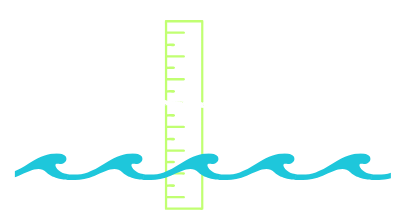
Pool Losing Water
Your pool is losing more than 1/4 inch of water per day, far beyond what Arizona's hot climate would normally evaporate.

Auto-Fill Never Stops
You notice your auto-fill system running frequently or continuously as it attempts to replace water that keeps disappearing.

Mysterious Wet Spots
Your yard has unexplained wet patches or strips of grass growing unusually thick and green compared to surrounding areas.
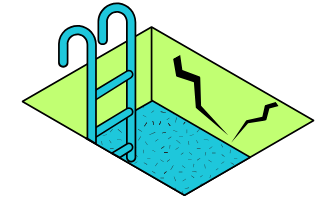
Structural Cracks
Visible cracks appear in your pool shell or surrounding deck, potentially indicating water seepage causing underlying damage.
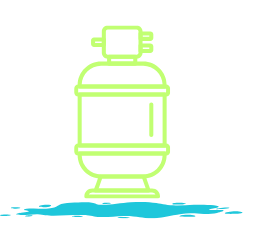
Puddles By Equipment
The concrete pad beneath your pump, filter or heater stays damp between service visits, suggesting equipment or connection leaks.
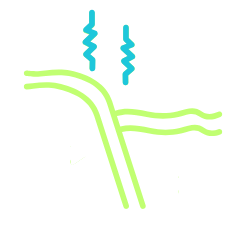
Uneven/Shifting Surfaces
Your previously level deck or patio now shows dips, slopes or uneven areas where escaping water has eroded supporting soil.

Air In The Pool System
Your pool system pulls in air through cracks or loose fittings, creating bubbles in return jets or air pockets in the pump basket.

Fighting PErsistant Algae
Despite regular treatment and proper filtration, stubborn algae blooms keep returning because fresh refill water constantly dilutes your chemicals.
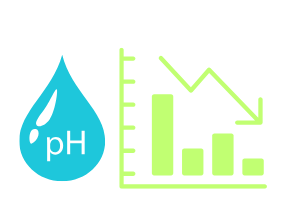
Hard To Balance Chemicals
You find yourself adding chlorine and balancers much more frequently than before, as your carefully adjusted water chemistry keeps changing.
Frequently Asked Questions
Do you only do pool leak detection or can you do spa leak detection too?
Absolutely! Arizona Leak Pros also specializes in leak detection for other types of water features, including spas, hot tubs, and fountains. Many spa leaks share similar characteristics with pool leaks, occurring at connection points, seals, and equipment areas where specialized detection methods are required.
What is your service area?
We provide our services all across the state of Arizona. We mostly service the east and west valleys but we can also travel farther to cities like Sedona or Tucson.
How can I tell where my pool is leaking?
Identifying the exact location of a pool leak can be challenging because what you see on the surface often doesn't match where the actual problem is happening. Some leaks are obvious, like visible equipment leaks around your pump or filter that create puddles you can easily spot.
However, underground plumbing leaks are particularly tricky because the escaping water travels through soil and can surface in areas completely unrelated to the actual leak location. This underground water movement makes it nearly impossible for homeowners to accurately pinpoint leak sources without professional detection equipment. That's why we use proven testing methods rather than relying on visual clues alone. We track down the true source of your water loss and get to the root of the problem.
How do you find a pool leak?
We use various leak testing methods depending on the specific factors involved in your pool system and the type of leak we suspect. The most common leak testing methods we employ are pressure testing, dye testing, and acoustic testing, each serving different purposes in our detection process. The combination of methods we use depends on factors like your pool's age, construction type, plumbing layout, and the symptoms you're experiencing. Our technicians assess each situation individually to determine the most effective testing approach for locating your specific leak quickly and accurately.
Still have a question?
Our experts are always happy to answer questions you may have regarding our pool leak detection services.
Give us a call today!
Leak Detection Service Request Form
Fill out the form below and we'll get back to you quickly to schedule your pool leak detection appointment. Our hardworking team of leak detectors will find the exact source of your leak and provide you with the permanent pool repairs you need to get your backyard back to being the relaxing oasis it should be.

